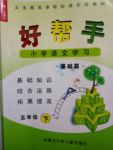题目内容
-________ I hand in the paper on Friday, Mr.Smith?
-No, you don’t have to.I’ll be on a business trip next week.
A.Must
B.May
C.Need
D.Shall

 一线名师口算应用题天天练一本全系列答案
一线名师口算应用题天天练一本全系列答案 小学学习好帮手系列答案
小学学习好帮手系列答案I get off the bus and walk a few blocks. I stop when I get to a garage-like place and walk to the metal door with brown paint. I turn the knob(把手)and walk in. A thousand eyes look at me as I take my place at the end of the long line. When I finally get up to the window, I hand the officer my ID. “I’m here to visit Mr C. Yes, I’m his daughter.”
I learn that line by heart. The officer hands me a piece of paper with my name as the visitor and my father’s as the prisoner. It tells me which floor to go to. As I get on the elevator, a rush of excitement runs through me. Then I go to the eighth floor, look around and see the faces I see here every Sunday and Thursday.
There he is. I stand on tiptoe(脚尖)to get a better view since I can hardly see him. He doesn’t look like my father. He’s got a beard now and he looks a lot weaker. He’s the dad that I see through a window. My dad who is separated from the world. The only place he now knows is his room in the prison. When I look deep into his eyes, I see emptiness and pain.
It’s difficult to hear him through the thick glass and over everyone else who is trying to talk. We try to carry on a normal conversation about simple things including my day and what I’m doing in school, but we mostly talk about how we can’t wait until he gets out. After an hour my time is up. We say our good-byes and love-yous.
I get on the bus to go home. My favorite place is where my father is—prison. I know, how can prison be anyone’s favorite place? But it is because my father is there. It’ll no longer be my favorite place once he gets out, though—home will be.
【小题1】The author goes to the prison_________.
| A.to talk with the officer | B.to visit her father |
| C.to get a piece of paper from the officer | D.to pay a visit to her favorite place |
| A.working there for a long time | B.just in prison for a short while |
| C.still healthy and strong in prison | D.seldom keeping in touch with people outside |
| A.Her behavior in school. | B.Simple things in everyday life. |
| C.Difficulty and trouble in her life. | D.The feeling of expecting him home. |
| A.The author’s father will never go home. | B.The author meets her father once a week. |
| C.The author’s favorite place will change. | D.The author hates her father. |
—__________ I hand in my report as soon as the class is over?
—No, you needn’t. Anytime this week is okay.
|
A.May |
B.Must |
C.Shall |
D.Can |
“ ______ I hand in the paper this week?” “ No, you ______. You _____ hand it in next week.
|
A.Must; needn’t; may |
B.will; mustn’t; ought to |
|
C.Shall; can’t; have to |
D.Should; didn’t have to; can |
 How fit are you? Do you look after yourself? Do you eat healthily or do you eat anything you like? Premier League football club Aston Villa are encouraging their players and local children to eat healthy food. They know that what you eat is the key to success.
How fit are you? Do you look after yourself? Do you eat healthily or do you eat anything you like? Premier League football club Aston Villa are encouraging their players and local children to eat healthy food. They know that what you eat is the key to success.